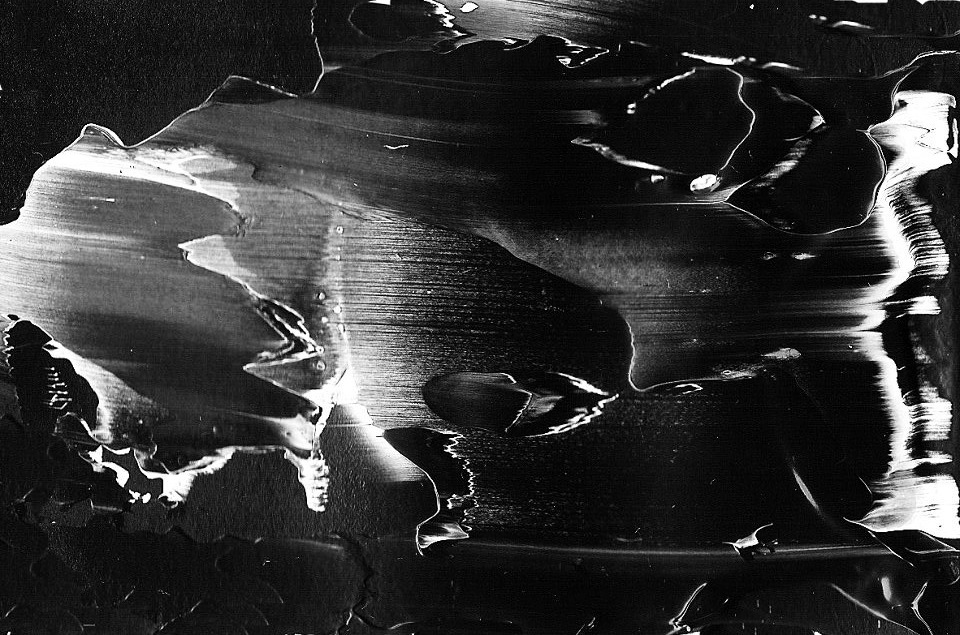|
|
| Apr/May 2013 • Nonfiction |
|
|
| Apr/May 2013 • Nonfiction |

Artwork by Clinton McKay
I watch him turn his face towards the breeze of the open window.
I refuse to tell him about the magnificent sunset.
From my peripheral vision, I see him turning his head back toward me, "I can see, Ma. I can see." Lately, he says that to me all the time.
*
"It's closed, Honey." I feel my heart sink as I say this. The chicken joint he eats at every night, is closed. It is five minutes to eight. His strict rule is "lunch at one thirty; dinner at eight." He refuses to leave the house before ten to eight. If he doesn't eat by eight, not a speck of food will enter his mouth until the next day at one-thirty.
"I don't need to eat. I'm not hungry," he says.
*
After his second hospitalization for anorexia, we were told that the only way to help him was through drugs. "Kids like him simply drop dead. I've seen it," said one of the doctors. His psychologist agreed.
I never allowed him to take drugs before.
His form of anorexia was deemed untreatable by a number of experts who ran clinics for people with eating disorders. His anorexia had nothing to do with body image; it was simply, and tragically, another obsession. He was controlled by his obsessions. His obsession with water had him jumping out of bed at the slightest sound of a faucet or the shower. The rigid, limited list of foods he would allow himself to eat, his decision to eat only at specific times, was, for him, as firm a part of his identity as his name.
*
The drug he was given, meant to ease the grip of his obsessions, almost killed him.
A rash appeared on his skin after a week of taking the drug. By the time we got to the emergency room, his skin was blistering. They suspected it was a drug reaction but all the tests indicated he was fine. I spent that night awake beside him while he slept in the hospital for observation.
I can't get those days out of my mind.
When he woke up in the hospital bed next morning, he pulled the outer layers of his tongue from his mouth; shaped like a snake, gray, looking like ash; he held it up like a found object. It felt reptilian and terrifying as I took it from him, placed it in my palms, running up to the nurses' station, pleading with them to believe me that something was terribly wrong. The whites of his eyes were bright red.
When the nurses saw me holding up the burnt layers of tongue, they had him rushed to the ICU.
*
The epidermis separated from the dermis on 90% of my son's body. I watched his skin peel off in slabs. "The skin inside his body is peeling in the same way," said one of the many doctors who came into my son's room to observe the horrifying severity of his condition.
The Burn Unit treated him; groups would come together to scrub the dying skin off his body.
His scorched skin, bloody, tender dermis beneath, covering his skinny body.
*
During the six weeks of his hospitalization, I often went into the hospital's meditation room. As he got better, he joined me there. It was exhilarating to see him walk again, to hold his arm, to feel the movement of his delicate body, next to mine. Everyday at four o'clock we'd get on the elevator and go. He would put his head on my lap, in the quiet of the room with stained glass windows. I would stroke his hair.
*
Only slowly did we learn how Steven-Johnson's syndrome affects the eyes.
His left eye went blind; the right eye is constantly exposed to infection; his eyes can no longer make tears; the disease process continues, forever; blood vessels growing into the cornea can easily blind his only eye.
*
We get out of the car and walk to the front door. My heart is racing, facing the fact, once again, that he will not eat tonight. Again. "Kids like him," I remember the doctor saying.
I put my face to his hair; smell the familiar scent of my child.